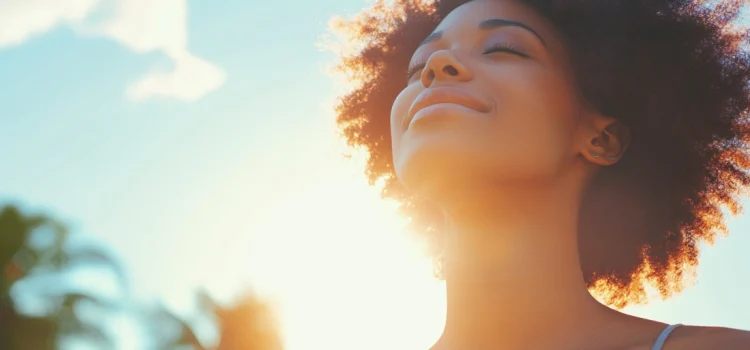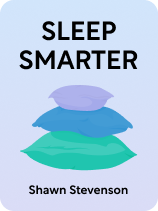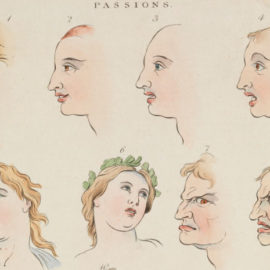

This article is an excerpt from the Shortform book guide to "Sleep Smarter" by Shawn Stevenson. Shortform has the world's best summaries and analyses of books you should be reading.
Like this article? Sign up for a free trial here.
What are the different types of sunlight hormones? How does sunlight improve the way you sleep?
Your circadian rhythms are controlled by a collection of nerves in your hypothalamus, the part of the brain responsible for regulating all hormones. One of the main triggers of these nerves is sunlight, which ultimately helps you sleep better
Keep reading to learn how to improve your sleep cycle by soaking in the sun.
Types of Sunlight Hormones
To help regulate your sleep cycle, Shawn Stevenson suggests getting more sunlight—particularly in the morning. When you expose yourself to sunlight in the morning, it signals to your hypothalamus that it’s time to wake up, prompting the release of sunlight hormones that make you more alert and trigger important biological processes, such as hunger and thirst.
(Shortform note: Research supports Stevenson’s emphasis on the importance of daylight in maintaining a consistent circadian rhythm. Experiments on humans living in underground bunkers have discovered an effect called “desynchronization,” in which people’s circadian rhythms drift from the usual 24 hours. One study found people’s bodies drifting as far as a 50 hour cycle of sleeping and waking.)
Morning sunlight exposure also prompts your body to produce hormones needed for a normal sleep cycle. Stevenson details three of these hormones: serotonin, melatonin, and cortisol.
Serotonin
Most people know serotonin as the hormone that creates a feeling of security and happiness, but it also plays an important role in regulating sleep cycles—in part by aiding in the production of melatonin (discussed below). Our brains produce serotonin when sunlight hits our eyes, and our skin also produces it when exposed to sunlight.
(Shortform note: Serotonin also plays an essential role in your mental health. Problems like depression and anxiety have been linked to low levels of serotonin, which is why many pharmaceutical treatments focus on increasing serotonin levels. This reinforces Stevenson’s claim that serotonin is essential for sleep, as depression and anxiety are both closely linked with insomnia.)
Melatonin
Melatonin prepares your body for sleep at the cellular level, thus improving the quality of your sleep. Your melatonin production is highly correlated to your exposure to light: Your body produces it as it gets darker in the evening, and getting more light during the day—and less at night—helps to ensure this process happens effectively.
(Shortform note: While the right amount of melatonin helps you sleep, too much of it can be a problem. Researchers have found a link between excessive melatonin production and SAD—or Seasonal Affective Disorder. This is a form of depression that afflicts people during winter months when the days are shorter and there is less daylight. The increased melatonin production may trigger symptoms of depression by decreasing overall energy and motivation.)
Cortisol
Cortisol is the hormone that most directly influences your circadian rhythms. Your body produces a surge of it in the morning, waking you up and helping you stay alert and focused throughout the day. Then, your cortisol levels fall during the day, so by the time the evening arrives, you’re ready for sleep.
If your cortisol levels are too high or too low at the wrong time, you may be tired when you’re supposed to be awake or alert when you’re supposed to be sleeping. Getting the right amount of light—particularly sunlight—during the day ensures that your cortisol levels rise and fall when they’re supposed to.
(Shortform note: Cortisol—produced in the adrenal glands above your kidneys—is most commonly known as the “stress hormone.” This is because your body naturally produces cortisol—alongside adrenaline—in stressful situations to arouse energy and alertness. Therefore, chronic stress can lead to elevated cortisol levels, which lead to difficulties in regulating your sleep cycle. Thus, even if you get proper exposure to sunlight, you may have sleep problems if you experience chronic anxiety and stress.)

———End of Preview———
Like what you just read? Read the rest of the world's best book summary and analysis of Shawn Stevenson's "Sleep Smarter" at Shortform.
Here's what you'll find in our full Sleep Smarter summary:
- How sleep affects your body, mind, and overall quality of life
- Practical suggestions for achieving a good night’s sleep
- The unexpected benefits of eating sweet potatoes






